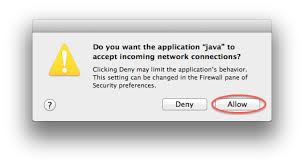记忆方法
将“allow”拆分为“al”和“low”。联想“al”如“al-loy”(合金),表示这是一个紧密结合的群体或事物。然后将“low”想象成“地下通道”(low可以联想到地下,如地下室的“地下”),这个通道允许人们通过(allow),因此“allow”表示允许或准许。
以上内容由AI生成, 仅供参考和借鉴
中文词源
allow 准许,发津贴
1.前缀al-同ad-, 去,往. 词根laud-, 表扬,词源同laudable,表扬,许可。引申词义准许。
2.前缀al-同ad-, 去,往. 词根loc-, 放置,分配,词源同locate,该词字母c脱落。引申词义补助的津贴。
英语词源
- allow
-
allow: [14] Allow comes ultimately from two completely different Latin verbs, allaudāre and allocāre, which became blended in Old French alouer. The first, allaudāre, was based on laudāre ‘praise’ (source of English laud, laudable, and laudatory); the second, allocāre (source of English allocate [17]) on locāre ‘place’.
The formal similarity of the Latin verbs gradually drew their meanings closer together. The notion of ‘placing’, and hence ‘allotting’ or ‘assigning’, developed via the now obsolete ‘place to somebody’s credit’ to ‘take into account, admit’. Meanwhile, the idea of ‘praising’ moved through ‘commending’ or ‘approving’ to ‘accepting as true or valid’, and ultimately to ‘permitting’.
=> allocate, laudable, location - allow (v.)
- early 14c., allouen, "to commend, praise; approve of, be pleased with; appreciate the value of;" also, "take into account or give credit for," also, in law and philosophy, "recognize, admit as valid" (a privilege, an excuse, a statement, etc.). From late 14c. as "sanction or permit; condone;" in business use from early 15c.
The Middle English word is from Anglo-French alouer, Old French aloer, alloiier (13c.) "allot, apportion, bestow, assign," from Latin allocare (see allocate). This word in Old French was confused and ultimately merged with aloer; alloer "to praise, commend," from Latin allaudare, adlaudare, compound of ad- "to" (see ad-) + laudare "to praise" (see laud). From the first word came the sense preserved in allowance as "money granted;" from the second came its meaning "permission based on approval."Between the two primary significations there naturally arose a variety of uses blending them in the general idea of assign with approval, grant, concede a thing claimed or urged, admit a thing offered, permit, etc., etc. [OED].
Related: Allowed; allowing.
权威例句
- 1. They will not allow your more way-out ideas to pass unchallenged.
- 他们不会放过你这些古怪的念头的。
- 2. Police warned motorists to allow extra time to get to work.
- 警方告诫驾车者出门上班要留出富余时间。
- 3. Why should a successful company allow another firm to pick its brains?
- 为什么一个成功的企业就得允许别的公司来讨教呢?
- 4. The decision to allow more offshore oil drilling angered some Californians.
- 允许进行更多近海石油钻探的决定激怒了一些加利福尼亚人。
- 5. He promised to allow justice to run its course unimpeded.
- 他承诺要让司法正义不受阻碍地得到伸张。
